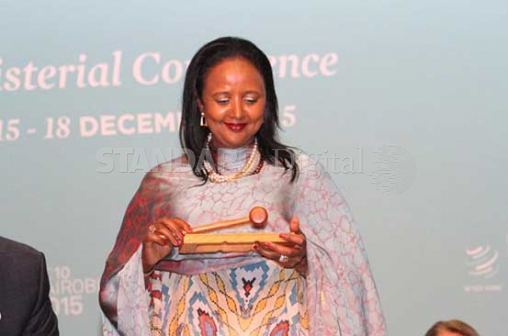×
The Standard e-Paper
Kenya’s Boldest Voice

The draft Nairobi Ministerial Declaration is a sad disappointment for the interests of developing countries in this first WTO ministerial on African soil.
It is not in any way an affirmation of the achievement nor even affirmation of the development promised in Doha, so critical to Africa’s economic prospects, but rather the near-burial of the Doha Development Agenda.